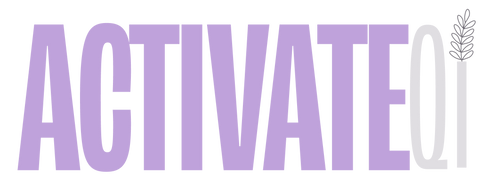In Traditional Chinese Medicine (TCM), Meridians are Key to Understanding How Energy, or Qi, Flows Through the Body
In this post, we’ll dive into the different meridians in horses and dogs, how they influence various parts of their bodies, and how TCM treatments like acupuncture and herbal therapy can help restore the smooth flow of Qi.
The Twelve Primary Meridians: Organ-Specific Pathways
Just like in humans, animals have twelve primary meridians that are directly associated with specific organs. These meridians are divided into Yin and Yang groups and run along distinct pathways in the body. Blockages or imbalances in any of these meridians can result in health issues that TCM can help resolve.
Yin Meridians (Zang Organs)
Yin meridians are linked to the solid organs, known as the Zang organs in TCM, which store vital substances such as Qi, blood, and fluids. In horses and dogs, these meridians regulate functions related to nourishment and internal balance.
Lung Meridian (LU)
The Lung Meridian governs breathing and skin health. In horses and dogs, it influences their respiratory systems, immune response, and skin condition. Imbalances in the Lung Meridian may result in coughing, asthma, skin allergies, or immune-related issues.
Spleen Meridian (SP)
The Spleen Meridian is responsible for digestion and energy transformation in animals. It regulates the digestive system, muscles, and immune function. An imbalance in this meridian may cause bloating, digestive upset, or fatigue in horses and dogs.
Heart Meridian (HT)
The Heart Meridian controls circulation and emotional stability in horses and dogs. It plays a critical role in managing stress and anxiety, as well as overall cardiovascular health. A disruption here can lead to signs of anxiety, restlessness, or heart-related issues.
Kidney Meridian (KI)
The Kidney Meridian is essential for reproductive health, growth, and aging. In animals, it regulates water metabolism and governs the bones and joints. Imbalances in the Kidney Meridian can lead to joint problems, hormone imbalance, kidney issues, or poor stamina, especially in aging animals.
Pericardium Meridian (PC)
The Pericardium Meridian acts as a shield for the heart, influencing emotional health and circulation in horses and dogs. It is closely linked to anxiety and tension. Issues with this meridian may show up as stress-related behaviors or cardiovascular symptoms.
Liver Meridian (LV)
The Liver Meridian regulates the flow of Qi and affects detoxification, emotional balance, and the tendons. In animals, this meridian is crucial for smooth movement and emotional well-being. Disruptions in the Liver Meridian can cause stiffness, irritability, or digestive issues.
Yang Meridians (Fu Organs)
Yang meridians are associated with the Fu organs, which process and transport food and waste. In horses and dogs, these meridians help regulate external functions like digestion and elimination.
Large Intestine Meridian (LI)
This meridian is involved in waste elimination and skin health. Blockages in the Large Intestine Meridian can lead to constipation, diarrhea, or skin conditions in horses and dogs.
Stomach Meridian (ST)
The Stomach Meridian is essential for digestion and nutrient absorption in animals. Imbalances can lead to symptoms such as nausea, vomiting, or gastric discomfort.
Small Intestine Meridian (SI)
This meridian helps separate pure substances from waste and supports digestion. Issues with the Small Intestine Meridian may cause digestive problems or urinary difficulties in dogs and horses.
Bladder Meridian (BL)
The Bladder Meridian governs the storage and release of urine and influences the health of the spine and back in animals. It is one of the longest meridians, running from the head down to the hind legs in both dogs and horses. Blockages may result in urinary problems, back pain, or stiffness.
Gallbladder Meridian (GB)
The Gallbladder Meridian affects digestion and decision-making. It also influences the tendons and muscles. This meridian plays a role in flexibility and mobility. Blockages may cause stiffness, muscle tension, or digestive disturbances. Even though horses do not have a gall bladder, horses have pain patterns and symptoms of having the meridian.
Triple Burner Meridian (TB)
Known as the San Jiao, this meridian regulates fluid balance and temperature in horses and dogs. It doesn’t correspond to a specific organ but governs the entire system’s ability to distribute energy and maintain internal harmony. Imbalances here may manifest as fluid retention, dehydration, or metabolic problems.
How TCM Helps Restore Meridian Balance in Horses and Dogs
In TCM, maintaining the smooth flow of Qi along these meridians is essential for the health of your horse or dog. When these pathways are disrupted, your animal may experience physical or emotional issues that can be resolved with TCM therapies. Acupuncture is one of the most common methods used to unblock meridians and restore Qi flow, while herbal medicine and dietary adjustments are often recommended to support overall energy balance.
The Importance of Meridian Balance in Animals
Understanding the meridian system in horses and dogs is key to promoting their health and well-being. By recognizing how these energy pathways influence organs, muscles, emotions, and the body’s overall function, you can gain valuable insight into how TCM therapies can help your animal thrive.
At ActivateQi, we specialize in using Traditional Chinese Medicine to support the health of animals.





